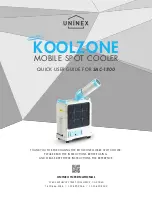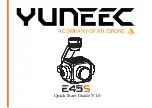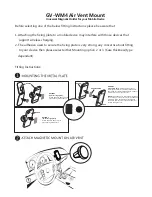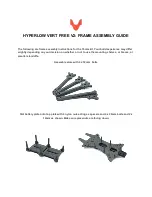
Page 2 of 5
SETTING UP THE MOTEC E.C.U.
CYLINDER SELECTION
Switches 1 and 2 can be arranged by the user to give settings for 4, 6, 8 and 12 cylinder setting by
following the coding arrangement on the facie board. Be careful to follow the printed lines from
the code panel to the switches. Rotary engines and twin ignition V8 engines require 4 cylinder
settings (see section- THINGS TO BE AWARE OF).
INJECTION TIME RANGE SWITCHES
Switches 3, 4 and 5 give 8 combinations of injection maximum on times varying from 4.5 ms. to 30
ms. Each range has a 20% overlap with the ranges preceding and subsequent to the one in
operation.
SWITCH SEQUENCES
SWITCH No. 3, 4 & 5
Range 1 OFF OFF
OFF LEANEST SETTING
2 ON OFF
OFF
3 OFF ON
OFF
4 ON ON
OFF
5 OFF OFF
ON
6 ON OFF
ON
7 OFF ON
ON
8 ON ON
ON
RICHEST SETTING
To make a range setting change push rocker switches gently with screwdriver. It should be clearly
understood that if the injectors used are too small in their flow capacity, they may be full on and
not supply sufficient fuel to cater for the requirements of a modified engine. Most standard injectors
as fitted by the motor manufacturer are sized to suit the H.P. output of that particular engine and
have very little extra capacity at all. We can assist in injector sizing or injector supply.
INJECTOR TYPE (ELECTRICAL RESISTANCE VALUE) SWITCH NO. 6
Broadly most injectors can be classified as either high or low resistance types. We have provided for
both types. Low value injectors of the 1 to 6 OHMS type would be controlled with the switch No. 6 in
the OFF position while high value injectors of the 6 to 16 OHMS type would be controlled with switch
No. 6 in the ON position. A simple multimeter can determine the type of injector by measuring
resistance across the two contact pins of the injector.
FUEL SUPPLY
It is most important that the following recommendations are adhered to for correct operation of
the injection system. If the system is being fitted to a vehicle not designed for fuel injection, it is
highly probable that the fuel tank has no provision for the prevention of surge or slosh as the tank
nears 1/3 or less capacity. This results in the high pressure pump being momentarily starved and
therefore running dry during cornering and under acceleration. This situation will most certainly
result in the engine cutting out when power is needed and the total destruction of the pump within
a very short period, as they require continuous fuel flow for their speed regulation and internal
cooling. This can be a very expensive problem. With the exception of some race vehicles, it is
difficult to have the H.P. pump(s) mounted below the minimum tank level and drawing from the
bottom of the tank thus we recommend the use of the following system:
1. Construct a header tank typically 3 inches dia. (75 mm) and 4 inches high (100 mm) with two 3/8"
0.D. pipes brazed or welded into the bottom and two one 3/8" O.D. pipes brazed or welded into
the sides near the top. Material preferably aluminium but steel O.K. This header tank can be firewall
mounted or boot mounted but should be several inches above level of H.P. pump. This header tank























